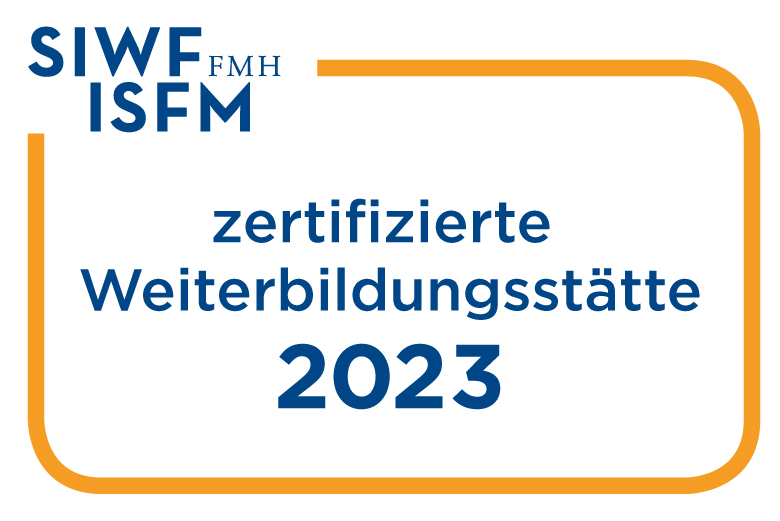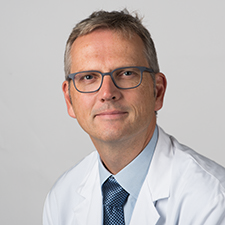Advanced specialist training FMH Core Curriculum Cardiology
Since the opening of the Heart Center, our training program for cardiology specialists has included 20 residency positions.
On a rotational basis, residents gain an insight into the various specialist areas of cardiology: echocardiography, rhythmology, interventional cardiology, heart failure and heart transplantation consultations, cardiology/cardiac surgery intensive care, consultation service and outpatient cardiology. In addition to learning the theoretical basics, the focus is also on acquiring practical skills. These primarily include the clinical assessment and triage of patients, performing echocardiograms, interrogating pacemakers and ICDs, assisting with cardiac catheter examinations, myocardial biopsies and more.
Requirements
Prerequisite for a training position in clinical cardiology is two years of general internal medicine, preferably with experience in intensive care medicine. (Further information at fmh.ch)
Special rotations
Special rotations enable a change to the department for congenital heart diseases (congenital vitia and cardiomyopathies), the cardiac surgery intensive care unit and interventional rhythmology.
Wards – Internal medicine
As part of the further training to become an FHM in Internal Medicine, there is an opportunity for further training in inpatient internal medicine patient care in the cardiovascular-thoracic area. Six-month periods of further training in angiology, pneumology, cardiology or general internal medicine can be credited.
Research
There are still opportunities for further training positions in clinical and experimental research, including fellowship programs for specialists with completed cardiology training in the departments of Rhythmology, Interventional Cardiology, Vascular Research, Heart Failure and Cardiac Imaging, as well as in the newly opened Center for Molecular Cardiology at the Wagiareal Campus Schlieren.
The training managers are PD Dr. Matthias Hermann and Dr. Marvin Grossmann. The mentoring program will continue to support junior doctors from the moment they take up their posts. During their time at the USZ, they are supported by a cardiology consultant of their choice in the planning and implementation of further training objectives and the organization of a follow-up position. In addition to clinical training, all assistants are expected to supervise a research project and publish at least one scientific paper (requirement for FMH Cardiology).

